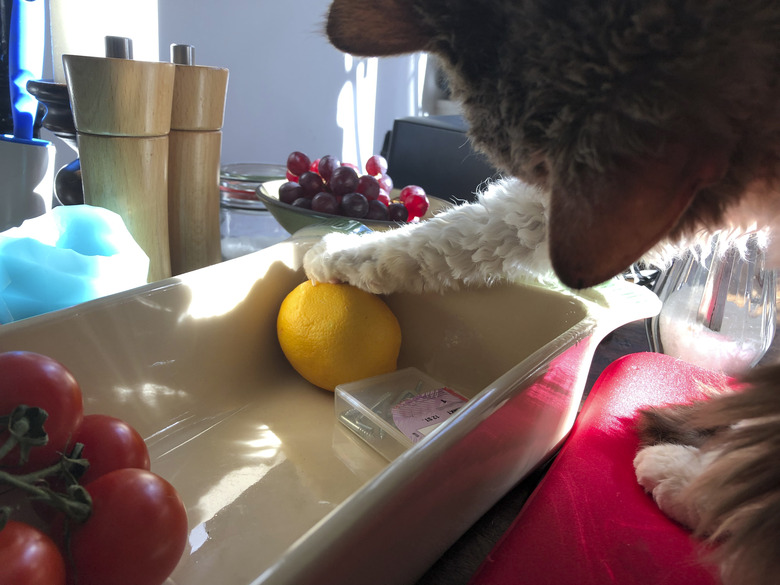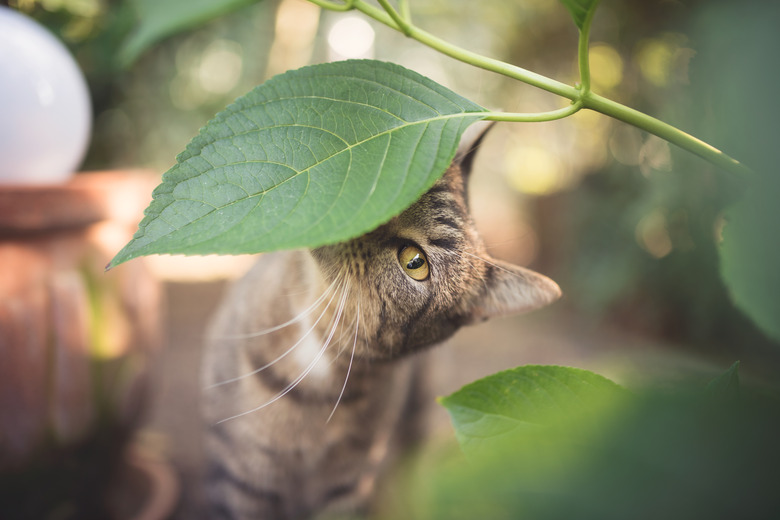Which Smells Or Herbs Will Repel Cats?
If you want to keep the local cats out of your garden, planting the right herbs may do the trick. Felines loathe certain smells, so growing certain plants may encourage them to leave your space alone and defecate elsewhere.
Citrus scents that repel cats
Citrus scents that repel cats
Cats don't like the scent of citrus. Keep cats away by throwing your orange, grapefruit, lemon, and lime rinds into the garden, since these are scents that repel cats.
If you or your family members consume citrus fruits daily, put fresh peels out every day and throw the prior day's materials into the compost bin. That way, you always have current cat repellent.
Herbal and plant cat deterrents
Herbal and plant cat deterrents
Quite a few herbs possess scents that repel cats, like lavender, rue, and rosemary, which also make a lovely addition to the garden and can be used for human cooking, teas and fragrance.
- Lemon balm: Cats hate it, but bees love it, so this is one outdoor plant safe for cats that also attracts useful pollinators. You can make a tea with the leaves to alleviate cold symptoms.
- Rosemary: A wonderful herb for cooking, doing double duty as a cat deterrent.
- Lavender: People love the scent, cats avoid it.
- Rue: Felines especially dislike the scent of rue. While the plant has certain medicinal properties, it's also dangerous when ingested, so these outdoor plants are not safe for cats.
- Coleus canina: Marketed under the name "Scaredy Cat," this annual sports blue flowers. It's most effective when planted as a hedge around any area you wish to remain cat-free. Cats can't stand the smell and avoid going near it. For the most part, people don't notice the odor. But if you rub the leaves, you'll detect a strong urine-like smell.
Outdoor plants that are safe for cats and also act cat-repellents are best placed around your garden's border, so felines don't stray into the flowers or vegetables to use the facilities. You can also place them in planters, stationed at the edges of the garden.
Essential oils to repel cats
Essential oils to repel cats
If you don't want to plant particular herbs or they're not suitable for your garden, try daubing some essential oils around the borders to repel cats. Oils cats disdain include:
- lavender
- eucalyptus
- citronella
- lemongrass
- citrus oils
These scents that repel cats can also be used in your home, diluted in a diffuser, to keep cats from certain areas. But watch your cat to make sure they are not having allergies or respiratory issues from diffused oils. Certain essential oils can be toxic to cats, though when used properly, they are a safe option. Never apply them directly to your cat, and always mix with water.
If your cat exhibits labored breathing, unbalanced walking, lethargy, muscle tremors, burned skin, or vomiting, call your vet as well as the ASPCA Poison Control hotline at 888-426-4435.
Affordable smells cats dislike
Affordable smells cats dislike
Many cat deterrents are free or very cheap items, so there's no harm in trying them to see if they're effective. These include vinegar — and the scent of human hair. Supposedly, felines don't like the smell of the latter.
You might disagree if you have cat who likes to lick your head, but that's the theory. When cleaning your hairbrushes, scatter the old hair around the garden.

